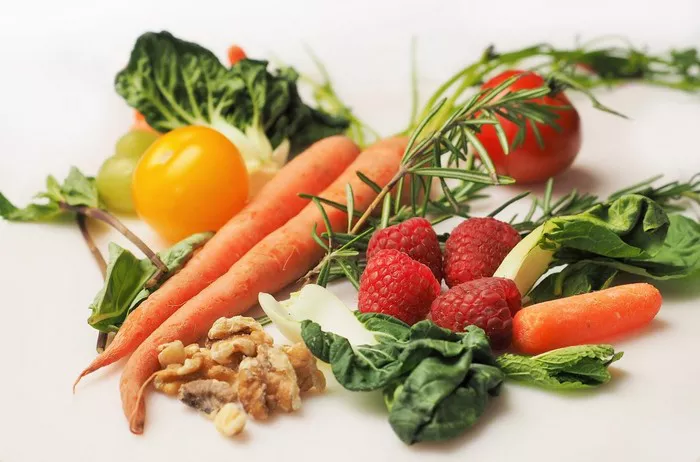In the quest for optimal health, nutrition plays a pivotal role, and choosing the right foods can make a significant difference. Nutritionists emphasize the importance of a well-balanced and diverse diet rich in nutrient-dense foods. In this article, we explore the top 10 healthy foods recommended by nutritionists, each offering a unique set of essential vitamins, minerals, and antioxidants to support overall well-being.
Top 10 Healthy Foods
Leafy Greens:
When it comes to healthy foods, leafy greens consistently top the list. Spinach, kale, Swiss chard, and collard greens are rich in vitamins A, C, and K, along with an array of minerals and antioxidants. These leafy vegetables are also high in fiber, promoting digestive health and contributing to a feeling of fullness. Incorporating a variety of leafy greens into your diet provides a nutritional boost while keeping calorie intake in check.
Berries:
Berries, including blueberries, strawberries, raspberries, and blackberries, are not only delicious but also packed with antioxidants. These compounds help combat oxidative stress and inflammation in the body. Berries are also rich in fiber, supporting digestive health and helping regulate blood sugar levels. Nutritionists often recommend including a colorful mix of berries in your diet to benefit from their unique combination of vitamins, minerals, and antioxidants.
Fatty Fish:
Fatty fish such as salmon, mackerel, and trout are prized for their high omega-3 fatty acid content. Omega-3s are essential for heart health, brain function, and reducing inflammation. The American Heart Association recommends at least two servings of fatty fish per week to reap the cardiovascular benefits. Nutritionists appreciate fatty fish not only for their omega-3 content but also as excellent sources of protein, vitamin D, and various minerals.
Quinoa:
Quinoa, often hailed as a superfood, is a versatile whole grain that stands out for its complete protein profile. Packed with all nine essential amino acids, quinoa is an excellent plant-based protein source. It is also rich in fiber, vitamins, and minerals, making it a valuable addition to a balanced diet. Nutritionists often recommend quinoa as a substitute for refined grains to enhance the nutritional content of meals.
Nuts and Seeds:
Nuts and seeds, including almonds, walnuts, chia seeds, and flaxseeds, are convenient and nutrient-dense snacks. They are rich in heart-healthy monounsaturated and polyunsaturated fats, fiber, vitamins, and minerals. Nuts and seeds also contain antioxidants that contribute to overall health. While they are energy-dense, moderate consumption can be a valuable part of a healthy diet, providing essential nutrients and promoting satiety.
Greek Yogurt:
Greek yogurt is renowned for its creamy texture and high protein content. It is also a fantastic source of probiotics, beneficial bacteria that support gut health. The probiotics in Greek yogurt contribute to a balanced gut microbiome, which is crucial for digestion and immune function. Additionally, Greek yogurt provides calcium, B vitamins, and is a versatile ingredient that can be enjoyed on its own or incorporated into various dishes and snacks.
Avocado:
Avocado is a nutrient-rich fruit that stands out for its creamy texture and unique nutritional profile. It is rich in monounsaturated fats, which are heart-healthy and contribute to satiety. Avocado also provides an array of vitamins and minerals, including potassium, vitamin K, and folate. Nutritionists often recommend incorporating avocado into salads, sandwiches, or enjoyed on its own as a satisfying and nutritious snack.
Broccoli:
Broccoli, a cruciferous vegetable, is a nutritional powerhouse that offers a myriad of health benefits. Rich in vitamins C, K, and folate, as well as fiber and antioxidants, broccoli supports immune function and helps combat inflammation. Its versatility makes it easy to include in various dishes, from stir-fries to salads. Nutritionists praise broccoli for its cancer-fighting compounds and overall contribution to a well-rounded, nutrient-packed diet.
Sweet Potatoes:
Sweet potatoes are not only a delicious and satisfying carbohydrate source but also a nutritional treasure trove. Packed with vitamins A and C, potassium, and fiber, sweet potatoes offer a nutrient boost with a lower glycemic index compared to some other starchy vegetables. Nutritionists appreciate sweet potatoes as a versatile ingredient that can be roasted, mashed, or added to soups, providing both flavor and nutritional benefits.
Legumes:
Legumes, including beans, lentils, and chickpeas, are staples in many healthy diets. They are rich in plant-based protein, fiber, vitamins, and minerals. The combination of protein and fiber promotes satiety, making legumes an excellent choice for weight management. Additionally, legumes offer a sustainable and environmentally friendly protein source. Nutritionists often recommend incorporating a variety of legumes into meals to enhance the nutritional content of the diet.
Conclusion:
A well-balanced and nutrient-dense diet is essential for overall health and well-being. These top 10 healthy foods, recommended by nutritionists, offer a diverse array of vitamins, minerals, antioxidants, and other essential nutrients. By incorporating these nutrient-rich delights into your daily meals, you can support your body’s functions, enhance energy levels, and contribute to long-term health. Remember, variety is key, and building a diet around a colorful array of whole foods ensures a comprehensive and nourishing approach to your nutritional needs.





















